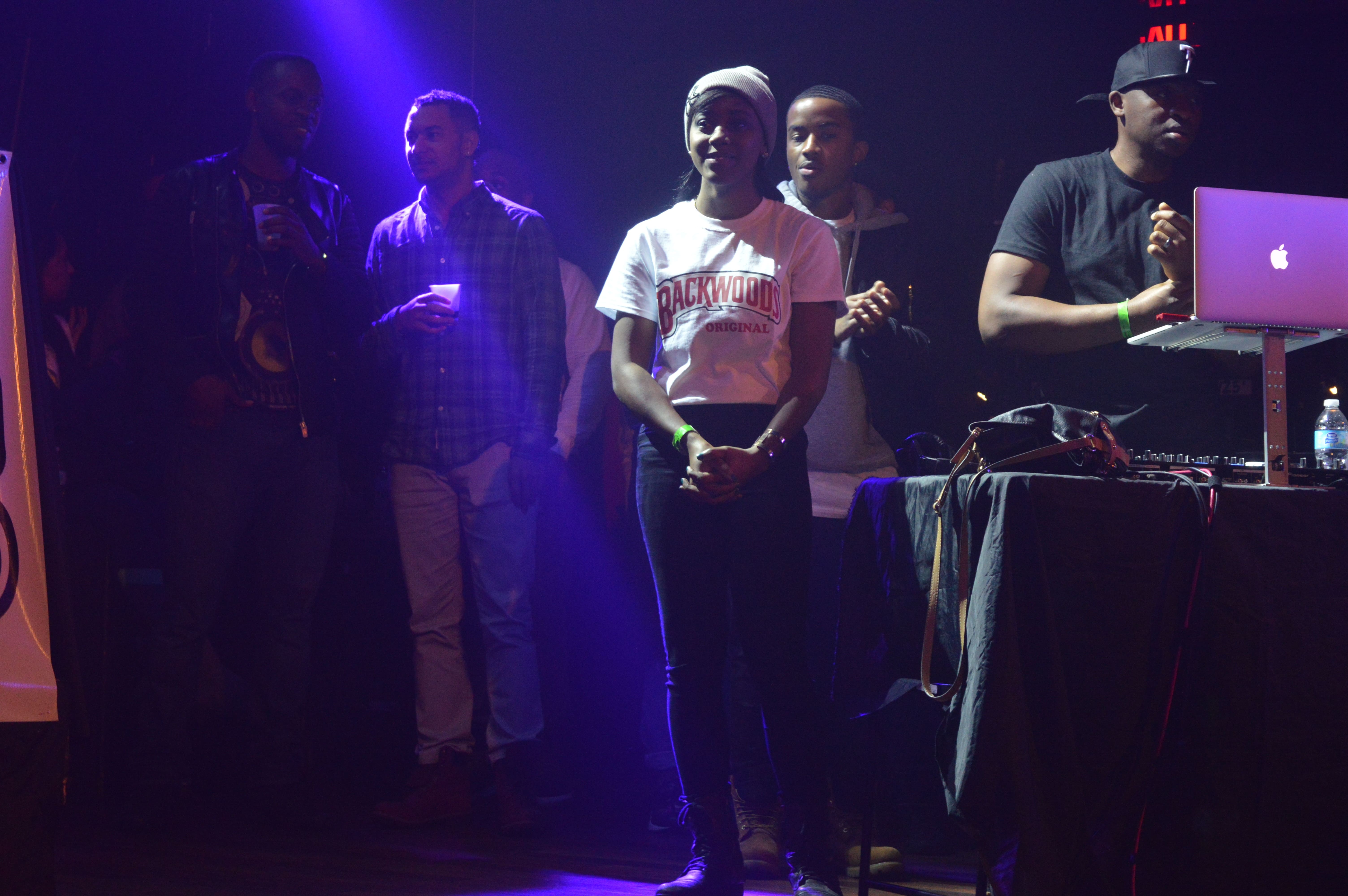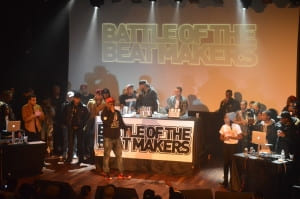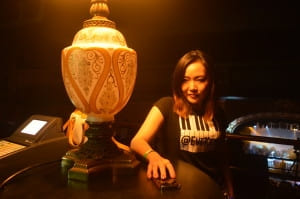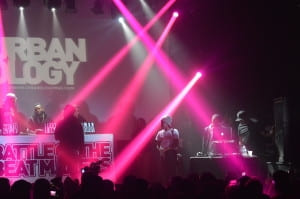
Battle of the Beatmakers is an annual competition in Toronto that showcases up-and-coming hip hop producers. Winners receive cash and prizes, as well as an opportunity to work with big names in the industry.
Thirty-two producers competed this year, including two women: LittleSister and EveKey. This was the same number, and the same producers, who competed in last year’s Battle of the Beatmakers. After the show, Women’s Post caught up with the two producers to see how they felt about being the only women in the competition, and to talk about the gender disparity that continues to persist in the hip hop industry.
Both women emphasized the need to support each other in competition because of their status as female producers. “She is a very genuine soul and a good person,” LittleSister said of EveKey. “I want to give her support and show her I’ve got her back. There aren’t too many of us [females] in the industry. When it comes to relating to each other, it is more comfortable for girls to talk to each other so it’s nice.”
LittleSister did very well in the competition, making it to the semifinals before being eliminated by fellow contestant, C-Sharp. The judges were very supportive of both female producers and the crowd was immensely excited to see the women on stage.

At the same time, women are often marginalized in hip hop and it is challenging to climb the ladder to a position of power, such as the role of producer.
Despite the number of women within the music industry — artists, producers, engineers, songwriters, beat makers, managers, ect. — women are often still thought of as lesser than their male counterparts. “I think that across the board there are gender disparities in terms of the perception that the music industry and the hip hop industry is a ‘man’s world’ so women often have to work twice as hard to prove themselves,” says Priya Ramanujam, editor in chief of Urbanology, one of the lead sponsors of Battle of the Beatmakers.
Interestingly, both LittleSister and EveKey emphasized the positive support they receive in the industry as producers. “Working with male artists, they were more open to receiving female opinions,” EveKey said. “It seems they enjoy working with a female producer. It is a fresh perspective.” Oftentimes, being a producer puts a person in a position of power in hip hop and this dynamic helps to endow the two women with a sense of equality.
“Hip hop does marginalize, but it is changing,” LittleSister reiterated. “Women have power positions now. Women are on the forefront but behind the scenes as well. Other women like Wondergurl, Kid Sister, and Missy Elliot are helping to open up power positions. The business side is very different from the music side of the industry. If you want to make money, gender doesn’t matter.” She also noted there was one case where a male client made sexist remarks towards her, and let his pride get in the way or business. She chose not to work with him again.

A study by Rana Emerson, a professor at the University of Texas, called “Where My Girls At?’ Negotiating Black Womanhood in Music Videos”* suggests that it is much easier for a woman to enter the industry into hip hop music when sponsored or associated with a man who is already established within it. Often, women have to choose whether to take the necessary partnership or to embark solo.
This was the choice that both EveKey and LittleSister faced—and they both decided to take their chances alone in the industry. “In general, it is difficult for a producer to come out on their own. It has to be built from the bottom up. Having male mentorship is a part of the way it is. It is about whether you want to choose to be on your own or not,” said LittleSister.

The choice to be an independent female producer in hip hop is a daunting one, but women like LittleSister and EveKey pave the way for others.
For young women trying to get into the industry, Ramanujam encourages them not to be afraid of the work. The more women who take the leap into hip hop and music production, the more others will be inspired to do so.
“Be prepared to be doubted and second guessed, to always have to prove yourself,” she says. “Again, this is not necessarily unique to hip-hop. But also remember that by taking the leap of faith and doing it, whether you know it or not, another young woman on the come up is watching, and may decide to follow in your footsteps because she sees another woman doing it. For me, that alone is worth what I go through.”
*With Files from hip hop enthusiast, Holly Jane

